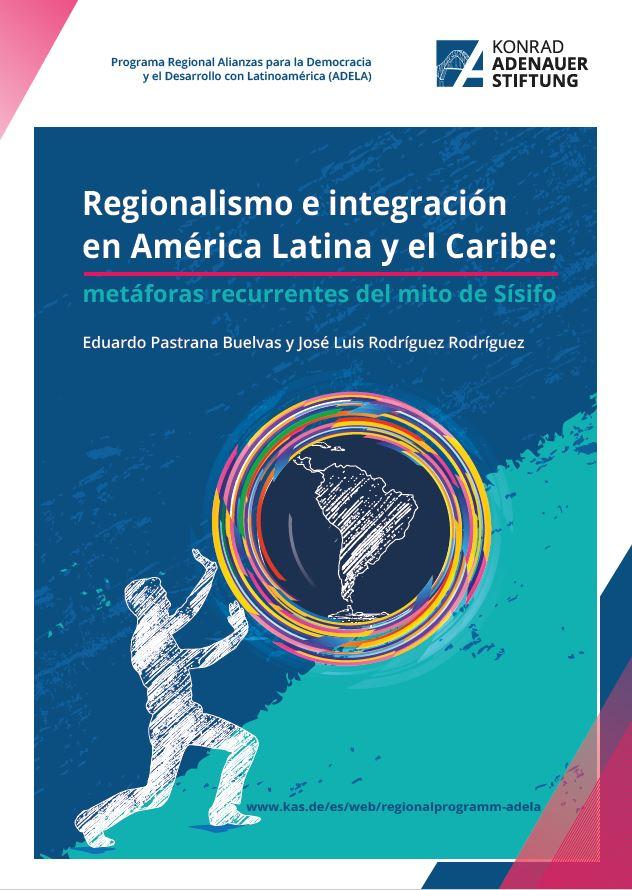The advancement and setbacks of integration processes in Latin America and the Caribbean have been a matter of constant interest and debate in both academic and political circles within our region and beyond its borders. Changes in global spheres of influence, the rise of protectionist policies, and the unilateralism of some significant states in foreign policy are altering international relations and putting global democratic order under pressure. Based on multilateralism and free trade, the German Federal Government, along with the Konrad Adenauer Foundation, is convinced that major global challenges cannot be resolved solely by national or bilateral states but also through multilateral cooperation offered, for example, within the framework of the United Nations or the European Union, in collaboration with partners worldwide.
Europe and the American continent are the most democratic regions on the planet, as well as natural partners in values and interests to strengthen supraregional and global alliances. Their common goal should be the competitiveness of our model of a free democratic society in a multipolar world. Initiatives like the recent EU-CELAC summits (first in Buenos Aires in 2022 and later in Brussels in 2023) provide a base platform for regular dialogue among different actors. This summit includes the participation of 33 CELAC countries and 27 European Union countries, which account for a total trade of around 369 million euros between the regions. The EU also has 27 political, trade, and cooperation agreements with 27 out of 33 Latin American countries.
In this context, the Konrad Adenauer Foundation has established the new Regional Program Alliances for Democracy and Development with Latin America (ADELA) since 2019, based in Panama. This program aims to contribute to strengthening international cooperation in America, Europe, and other regions of the world while providing spaces for dialogue among different actors. The target groups include experts in international politics and economics, civil society business associations, representatives of international and regional organizations who are multipliers of economic, social, foreign, security, and development policy.
In this sense, ADELA promotes dialogue between Latin America and other regions of the world on issues of international politics, global and regional security, regional and international trade, and the achievement of the SDGs of the 2030 Agenda. This is how we want to contribute to strengthening a democratic and liberal global order that advances the interests of democratic states within the framework of multilateral cooperation and international obligations.
Taking into account this context, this publication looks at the integration processes in Latin America, as well as the difficulties encountered in the development of common initiatives and agreements within the region. This is particularly due to the diversity of political and economic factors in each of these countries, which has led to bilateral exchanges with the European Union but not yet a unified position among Latin American and Caribbean actors. To establish a common direction between both regions, it is necessary to identify how regional processes in Latin America have developed and the factors that need improvement to ensure satisfactory and productive cooperation with other regions of the world. Therefore, it is of interest to understand the framework within which your regional work must be carried out by generating a contextual analysis baseline of the relationships created in Latin America and the Caribbean. This way, initiatives and cooperation can be developed to promote common interaction spaces in the face of the democratic, political, economic, and social challenges that limit the capacity for sustainable growth in the region.
This publication is an in-depth analysis of the work done by the authors Eduardo Pastrana Buelvas and José Luis Rodríguez Rodríguez in the book 'Challenges and Opportunities of International Trade in the Post-Pandemic Era,' produced by KAS in collaboration with CEPAL in 2023. We thank the authors for their research and academic work, providing an insightful analysis of integration processes in Latin America.







To commit you must sign in.